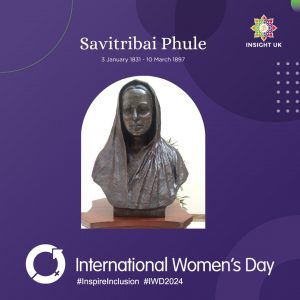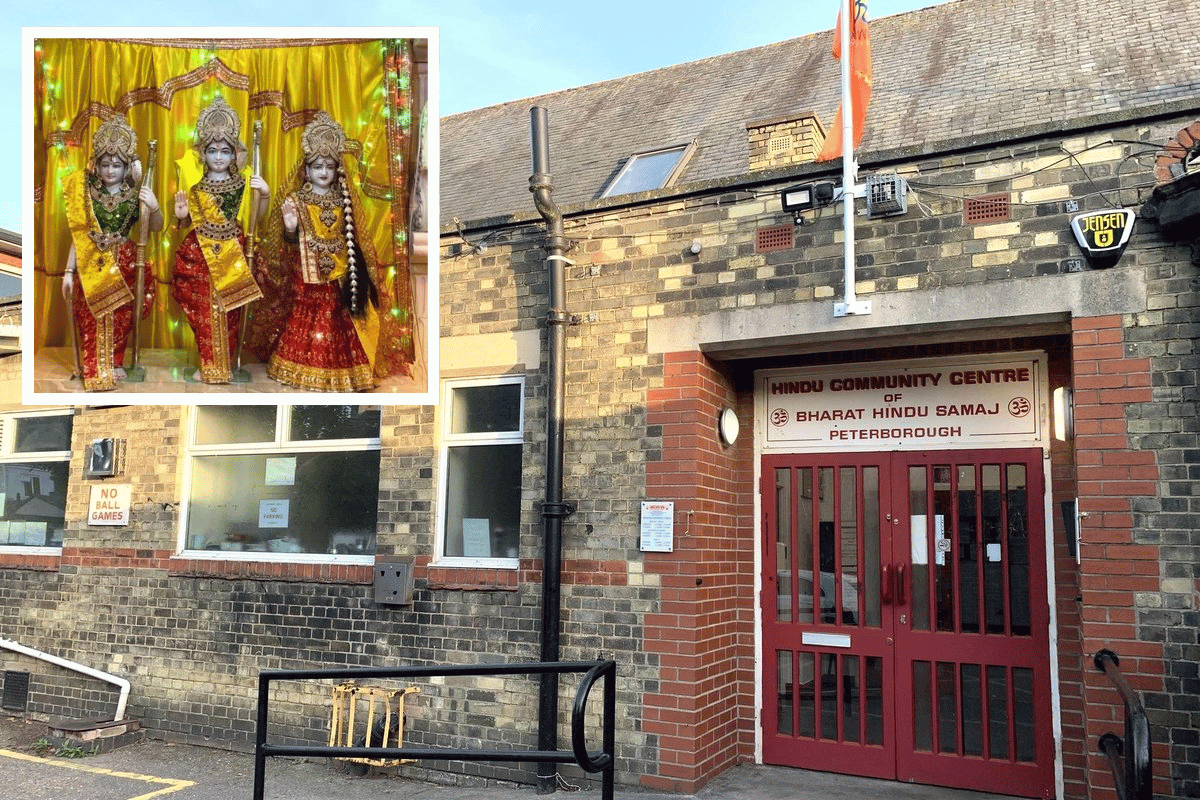
To celebrate International Women’s Day, INSIGHT UK highlights the lives of some exceptional women of Bhārat (India).

Savitribai Phule

Savitribai Phule
Savitribai Phule, born in 1831, was an amazing personality in 19th-century Bharat.
She pioneered women’s education alongside her husband, Jyotirao Phule, establishing India’s first school for girls in Pune in 1848.
Savitribai faced immense societal backlash but remained undeterred. She advocated for widows’ rights, launched a shelter for abused women, and founded a care centre for pregnant rape victims.
Her efforts opened doors for women in education and social reform. Savitribai’s legacy remains profound, exemplifying resilience and determination in the face of adversity, her work forming the bedrock for women’s development in India.
Sarojini Naidu

Sarojini Naidu
Sarojini Naidu, born in 1879, was a multifaceted Indian freedom fighter, poet, and politician.
She actively participated in the Indian independence movement and played a pivotal role in empowering women, advocating for their education and political participation.
Sarojini-ji became the first woman to preside over the Indian National Congress in 1925. Additionally, Sarojini-ji founded the Women’s India Association in 1917, focusing on issues such as women’s suffrage, education, and employment.
Through her leadership and eloquence, Sarojini-ji inspired countless women to engage in social and political activism, leaving a mark on the history of Bharat and women’s development.
Jhansi ki Rani Lakshmibai

Rani Lakshmibai
Rani Lakshmibai (born Manikarnika Tambe), famously known as Jhansi ki Rani, was born in 1828.
A fearless warrior and key figure in the Indian Rebellion of 1857, she fiercely resisted British colonial rule. Lakshmibai displayed exceptional leadership and military prowess, leading her army into battle against British forces.
Her courage and determination became legendary, symbolizing the spirit of Indian resistance.
While her focus was primarily on fighting colonial oppression, her defiance against societal norms of her time inspired women to break free from traditional constraints and participate in the struggle for independence.
Lakshmibai’s legacy continues to inspire women’s empowerment movements in India.
Sophia Duleep Singh

Sophia Duleep Singh
Sophia Duleep Singh, daughter of Maharaja Duleep Singh, was a prominent suffragette in Britain. Despite her royal lineage, she dedicated herself to women’s rights activism and joined the Women’s Social and Political Union, engaging in protests and advocating for women’s suffrage.
Sophia-ji’s actions raised awareness and pushed for legislative changes, contributing significantly to the eventual granting of voting rights for British women.
Additionally, she supported organisations empowering women, such as the Suffragette Fellowship.
Through her activism and influence, she played a vital role in advancing the development of women’s rights and promoting gender equality in early 20th-century Britain.
Shakuntala Devi

Shakuntala Devi
Shakuntala Devi, born in 1929, was a mathematical prodigy renowned as the “Human Computer.”
With exceptional mental calculation abilities, she astounded the world with her feats in mathematics, earning global acclaim.
Devi’s achievements shattered gender stereotypes, inspiring women to excel in STEM fields. Through her lectures and performances, she promoted the importance of mathematics education, especially for girls.
Devi-ji’s legacy empowered women to pursue careers in traditionally male-dominated disciplines, fostering a more inclusive academic environment.
Her books and educational materials continue to inspire generations of women to embrace their passion for mathematics and pursue excellence in their chosen fields.









